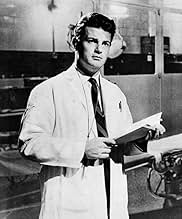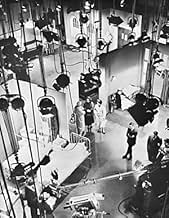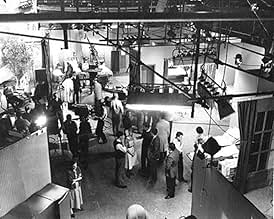Britain's first medical soap, which was also the first of the nation's twice-weekly serials, (airing on Tuesday's and Friday's), 'Emergency - Ward 10' started life as 'Calling Nurse Roberts,' a six-week filler which went on to become one of the nations best loved programmes, reaching an average audience of 16 million people a week and 24 million at its peak.
Set in the fictitious surroundings of Oxbridge General Hospital, the series was an instant hit -with one million viewers tuning in to the first episode in February 1957, and running for ten years. In the process it made stars out of the actors and actresses who walked its wards, not least of all Jill Browne, who played pin-up nurse (later Sister) Carole Young. The series also won praise from the British Medical Association for allaying people's fear of hospitals, and in 1962 the then Minister of Health, Enoch Powell, congratulated the show on its 500th episode and commented on the useful job it did in reminding the public of the need for immunization.
Although the series was high in drama it had a very low mortality rate (patient deaths were strictly limited to five per year), concentrating more on the lives of the men and women who staffed the hospital. There were, of course, none of the graphically visual blood and guts on show that audiences expect from medical dramas today especially in shows such as 'Casualty' or 'The Golden Hour.' Nevertheless, although sedate by today's standard the series did set a landmark in 1964 and courted a considerable amount of controversy with its portrayal of an interracial relationship between surgeon Louise Mahler (Joan Hooley) and Doctor Giles Farmer (John White) which included the first ever on-screen interracial kiss.
The long list of patients who received treatment within 'EW10's' walls included Ian Hendry, Joanna Lumley and Albert Finney, all of whom went on to bigger and better things. There was a 1958 full-length feature film, 'Life in Emergency Ward 10,' and a brief spin-off series starring Richard Thorp, 'Call Oxbridge 2000,' but in 1967, with ratings beginning to fall, ATV supremo Lew Grade pulled the plug on the hospital's life support. Grade later admitted it was; 'one of the two biggest mistakes of my life.' In 1972 he tried to revive the series as 'General Hospital,' although this had far lesser impact on viewers.









